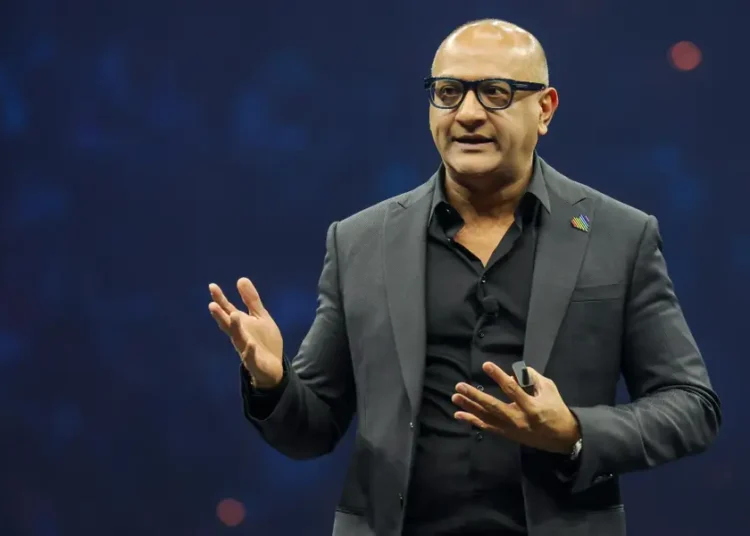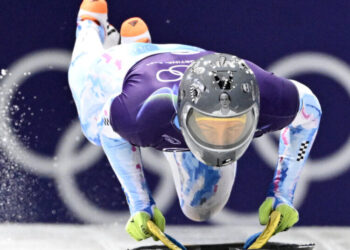The move by the Centers for Disease Control and Prevention this week to walk back an assertion on its website that vaccines do not cause autism has spotlighted how Health Secretary Robert F. Kennedy’s personal skepticism about vaccines is now shaping the nation’s public health policy.
It has also raised more questions about the decisions of key Republican senators who had been wary of confirming Mr. Kennedy to swallow their concerns early this year and support him.
The leading skeptic was Senator Bill Cassidy of Louisiana, a doctor and the chairman of the Senate’s health committee, who agonized over whether to cast the crucial vote to back Mr. Kennedy. He ultimately did so after outlining in a speech on the Senate floor a list of concessions he said he had secured from Mr. Kennedy, all aimed at limiting his ability to impose anti-vaccine views on the agency.
Nine months later, some of the most consequential promises that Mr. Cassidy said he had secured from Mr. Kennedy appear to have been breached or broken altogether.
Here’s a look at areas in which Mr. Kennedy appears to have ignored or sidestepped Mr. Cassidy’s demands.
Mr. Kennedy agreed to work closely with Mr. Cassidy.
Before he voted to confirm Mr. Kennedy in February, Mr. Cassidy said that Mr. Kennedy had committed to sharing an “unprecedentedly close collaborative working relationship if he is confirmed.” The two agreed to speak or meet a few times a month.
The men do appear to speak regularly. But they most often disagree, and Mr. Kennedy does not often make concessions to the Senate Health, Education and Labor Committee chairman based on their disagreements. For instance, Mr. Kennedy said he had spoken with Mr. Cassidy before revealing the changes to the C.D.C. website.
“He disagreed with the decision,” Mr. Kennedy said.
Mr. Kennedy said he would protect access to vaccinations.
In his floor speech, Mr. Cassidy spoke at length about his worry that the Health and Human Services Department under Mr. Kennedy would withhold access to or sow public fear about vaccines. He said his support was “built on assurances that this will not have to be a concern and that he and I can work together to build an agenda to make America healthy again.” And at his swearing in, Mr. Kennedy said that he would do nothing as health secretary that “makes it difficult or discourages people from taking” vaccines.
But Mr. Kennedy has canceled $500 million in funding for the development of mRNA vaccines that help prevent diseases like the flu. And he changed the recommendations for who should take the COVID-19 vaccine, narrowing it to seniors and people at high risk.
At a hearing in September, several Republicans expressed concerns that his decisions as secretary had made it more difficult for Americans to obtain the vaccines they need.
“Effectively, we’re denying people vaccines,” Mr. Cassidy said.
“You’re wrong,” Mr. Kennedy fired back.
Mr. Kennedy agreed to keep the C.D.C.’s Advisory Committee on Immunization Practices
Back in February, Mr. Cassidy said he had been assured that Mr. Kennedy “would work within the current vaccine approval and safety monitoring systems, and not establish parallel systems.”
He added: “If confirmed, he will maintain the Centers for Disease Control and Prevention’s Advisory Committee on Immunization Practices without changes.”
In June, Mr. Kennedy fired all 17 members of the board and replaced them with eight new members, at least four of whom had been critical of vaccination in the past. (One later stepped down because of financial conflicts of interest.)
In response, Mr. Cassidy broke with Mr. Kennedy, calling for an indefinite delay in the meeting of the panel, arguing that its members were unqualified to ensure public faith in its recommendations.
The meeting went ahead, as planned.
Mr. Kennedy agreed the C.D.C. website would continue to say: “Vaccines do not cause autism.”
It is rare for a senator to make specific demands about the wording of a federal agency’s website. But Mr. Cassidy purposefully stated for the record a commitment he said Mr. Kennedy had made to him that “C.D.C. will not remove statements on their website pointing out that vaccines do not cause autism.”
On Wednesday, the C.D.C. website was updated with new text that said, “The claim ‘vaccines do not cause autism’ is not an evidence-based claim because studies have not ruled out the possibility that infant vaccines cause autism.”
The web page still has a headline up stating, “Vaccines do not cause autism,” underneath the new text strongly suggesting that they might. But it includes an asterisk and a footnote that explains the statement is only there because technically the agency would be in violation of an agreement with Mr. Cassidy if it were removed.
Mr. Cassidy has been using his social media channels to push back, stating that “vaccines for measles, polio, hepatitis B and other childhood diseases are safe and effective and will not cause autism.”
Mr. Kennedy agreed to seek Mr. Cassidy’s input on hiring.
If the secretary has sought input from Mr. Cassidy in making hiring decisions, he has not appeared to have given it much weight.
Mr. Kennedy has not only brought in advisers who are critical of vaccination but he has fired top officials who disagree with his worldview.
Susan Monarez, the former director of the C.D.C., said in September that she was fired from the post “for holding the line on scientific integrity.” In testimony before the Senate Health Committee, Dr. Monarez said that Mr. Kennedy had requested that she fire top C.D.C. officials responsible for vaccine policy and accept the recommendations of his handpicked advisers, or resign.
(Mr. Kennedy claimed that he had fired her for refusing to say she was “trustworthy.”)
Ms. Monarez called Mr. Cassidy after the conversation in question to warn him that she might not be around much longer. It is not clear whether the senator tried to intercede on her behalf, but she was fired by the White House two days later.
Sheryl Gay Stolberg contributed reporting.
Annie Karni is a congressional correspondent for The Times.
The post Cassidy Got Pledges From Kennedy on Vaccines. They Haven’t Stuck. appeared first on New York Times.




